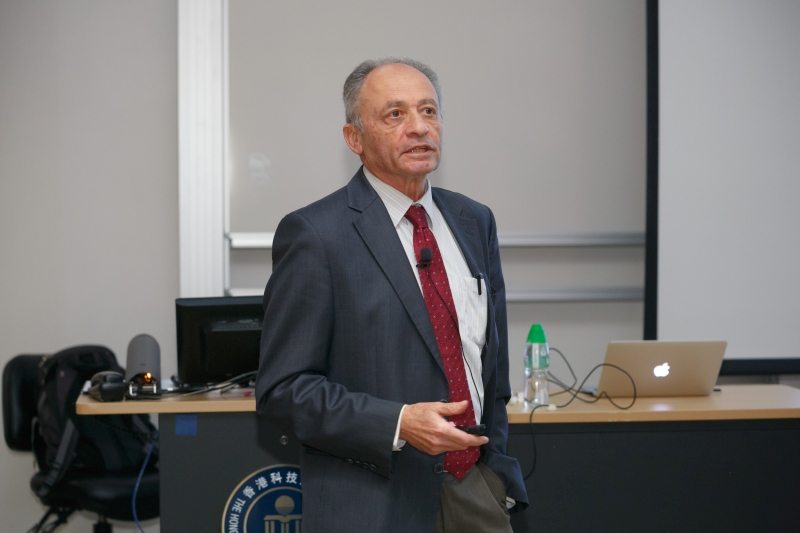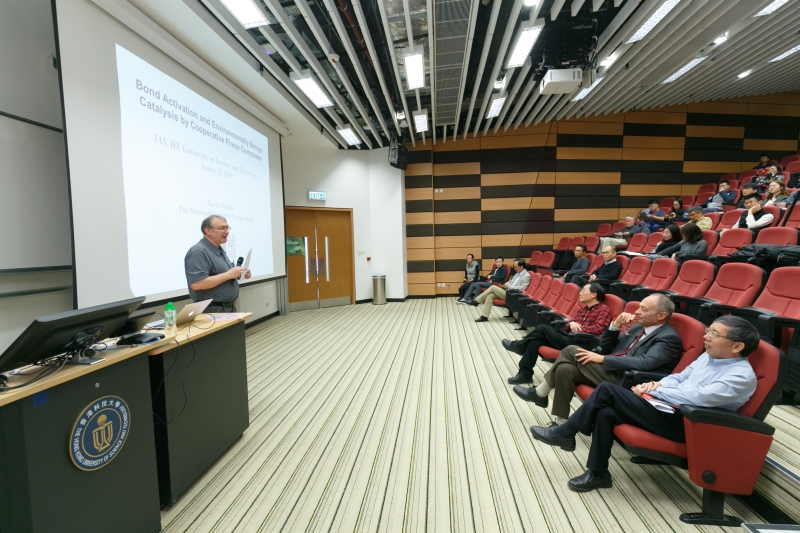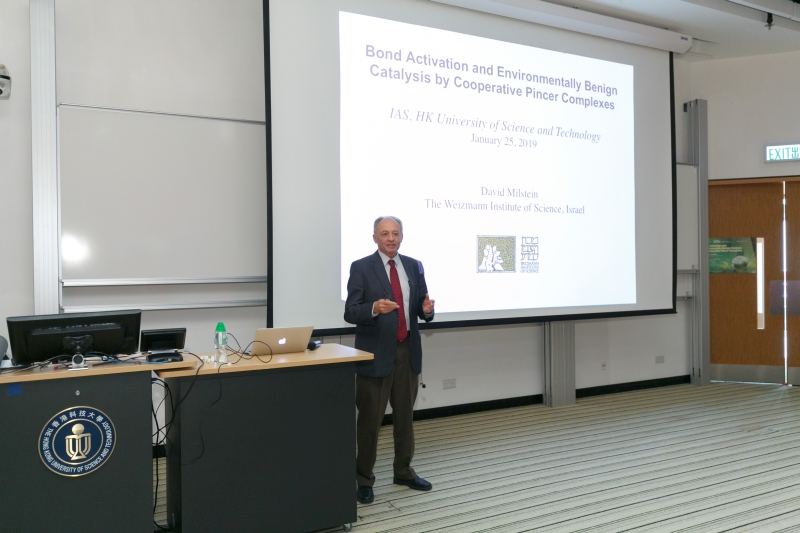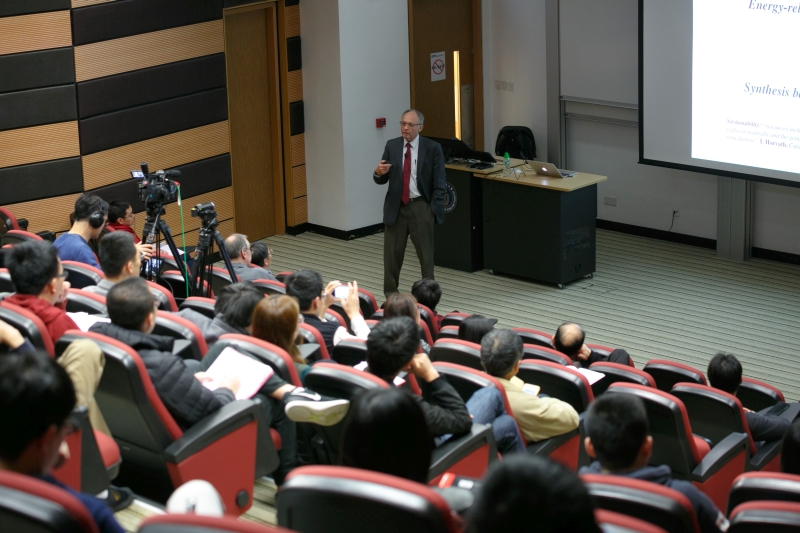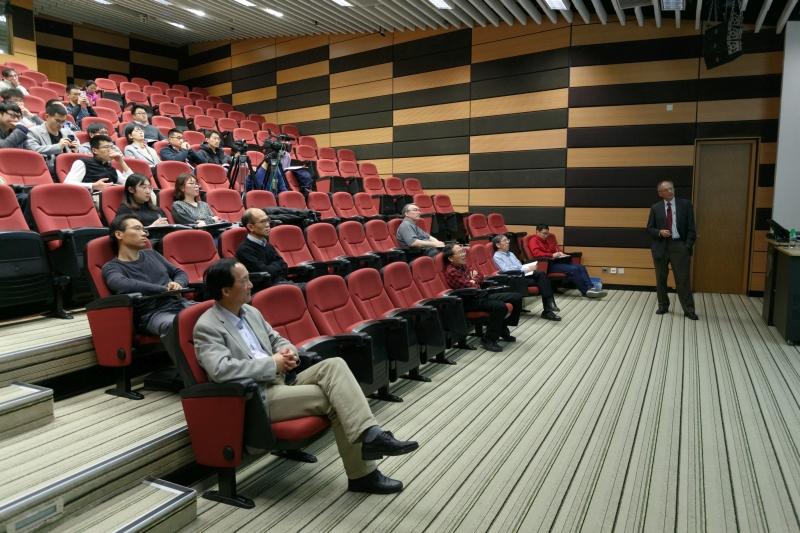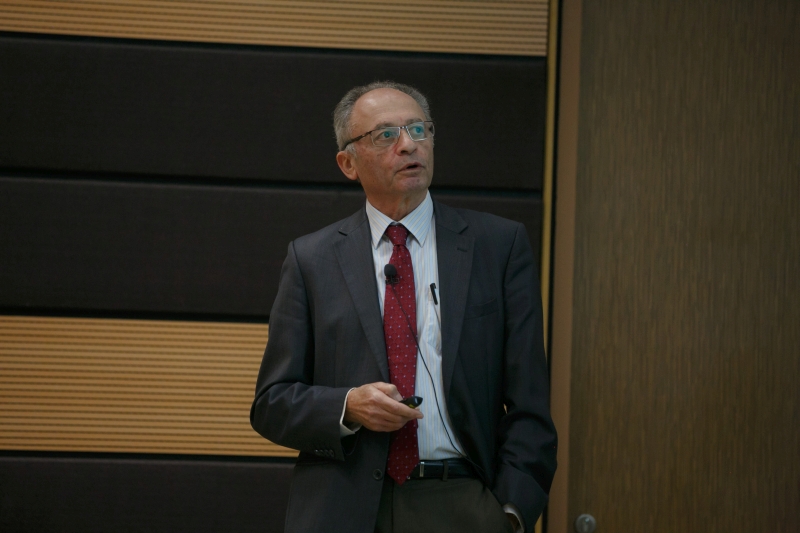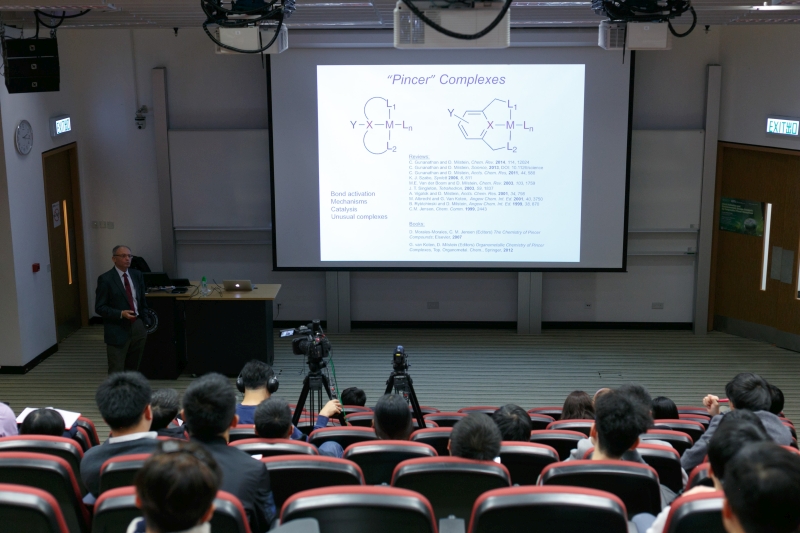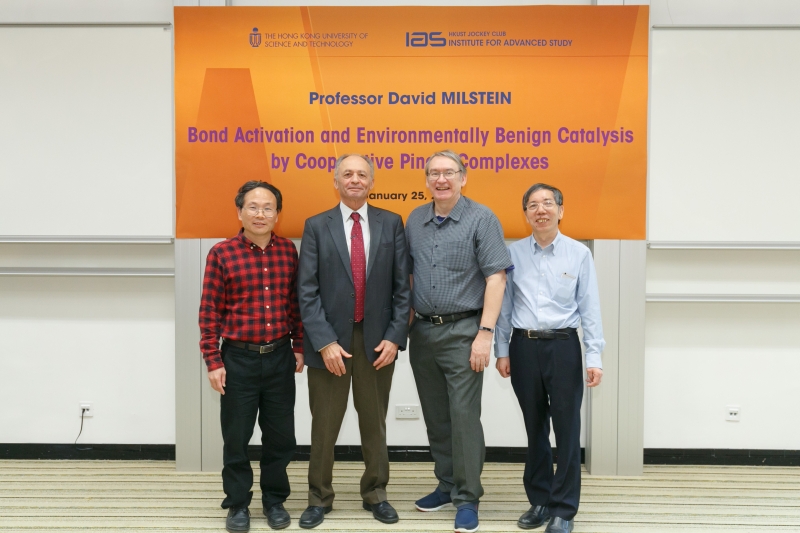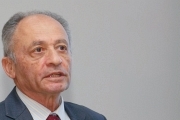Bond Activation and Environmentally Benign Catalysis by Cooperative Pincer Complexes
Abstract
The speaker and his collaborators have developed “cooperative” pincer-type metal complexes in which the pincer ligand and the metal center bound to it cooperate in the activation of various chemical bonds, by virtue of reversible de-aromatization of the pincer ligand. This mode of Metal-ligand Cooperation (MLC) has led to several unusual, efficient, environmentally benign catalytic reactions, such as the dehydrogenative coupling of alcohols and amines to form amides, peptides and polyamides with liberation of hydrogen gas and no waste generation, and to the use of water as a selective oxidant of alcohols and cyclic amines, with H2 evolution. A new approach to catalysis, in which most of the catalytic processes occur at the ligand while the metal serves as an “anchor” was also developed. Hydrogen storage systems based on catalysis by cooperative pincer complexes will also be presented.
About the speaker
Prof. David Milstein received his PhD at the Hebrew University of Jerusalem in 1976 with Prof. J. BLUM as his mentor. He carried out postdoctoral research at Colorado State University and discovered the Stille Reaction with his advisor Prof. John STILLE. In 1979, he joined the DuPont Company in Wilmington, Delaware and became a Group Leader in the homogeneous catalysis area. In 1987, Prof. Milstein accepted a professorial appointment at the Weizmann Institute of Science where he was the Head of the Department of Organic Chemistry during 1996 - 2005. He was also the Founder and the Head of the Helen and Martin Kimmel Center for Molecular Design in the Institute between 2000 and 2017. Since 1996, Prof. Milstein has become the Israel Matz Professional Chair of Organic Chemistry.
Prof. Milstein’s research interests focus on the development of fundamental organometallic chemistry, such as metal-ligand cooperation, and its application to the design and implementation of new sustainable, green, catalytic reactions for synthesis and energy.
Prof. Milstein received a number of prestigious awards including the Israel Chemical Society Gold Medal (2017), the European Prize for Organometallic Chemistry (2017), the Eni Environmental Protection Prize (2016), the Israel Prize in Chemistry and Physics (2012), the Meitner-Humboldt Senior Research Award (2010), the Royal Society of Chemistry Sir Geoffrey Wilkinson Award (2010), the American Chemical Society Award in Organometallic Chemistry (2007), the Israel Chemical Society Excellence Prize (2006) and the Kolthoff Prize by Technion - Israel Institute of Technology (2002). He was named Highly Cited Researcher by Thomson Reuters and listed among the World's Most Influential Scientific Minds (2014, 2015, 2016, 2017). He is also a member of the Israel National Academy of Sciences and Humanities, the German National Academy of Sciences-Leopoldina, and the US National Academy of Sciences.

